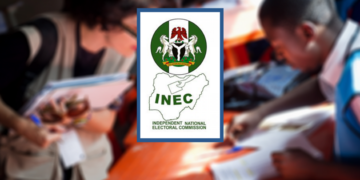The Senate Committee on Federal Character and Inter-Governmental Affairs has intensified its ongoing Investigative Hearings on the Small and Medium Enterprises Development Agency of Nigeria (SMEDAN) and the National Universities Commission (NUC) over alleged lopsided recruitment and promotion practices by the agencies.
During an investigative hearing on Wednesday, the Committee, chaired by Senator Allwell Onyesoh (Rivers East), interrogated the management team of SMEDAN, led by its Director-General, Mr. Charles Odii.
The agency was queried for failing to uphold the federal character principle as enshrined in the Constitution, which demands equitable representation of all states and geopolitical zones in federal employment regardless of region, tribe or religion.
Senator Onyesoh, expressing deep concern, described the agency’s recruitment data as “very bad,” citing glaring regional imbalances. “How can one state—Kogi—have 30 staff out of 97 in the North Central zone, while Benue and the FCT have just 8 each?” he queried.
He further noted that in the North-West, “Katsina alone has 44 staff out of 94, while Kebbi has only one. These numbers are not acceptable.”
The South-East region was also flagged for underrepresentation, with a total of 43 SMEDAN staff across the five states. Ebonyi State, for example, has just three staff, in contrast to Imo State having 16.
Responding to the concerns, Mr. Odii acknowledged the imbalance and promised that “future recruitment exercises will be handled with greater attention to equity.” The Committee instructed SMEDAN to return within a week with an updated plan to address the disparities.
In another session, the Committee engaged the leadership of the NUC, led by its Executive Secretary, Professor Abdulahi Yusufu Ribadu.
Although the NUC stated that it had not conducted any recruitment since 2014, it presented a staff breakdown of its current 512 personnel, revealing further disproportions: North-Central (127), North-West (57), North-East (52), South-South (105), South-West (62), and South-East (111).
Senator Onyesoh again stressed the need for corrective action: “Even if there hasn’t been new recruitment, the current distribution does not reflect the federal character principle. This must be rectified in future engagements.”
He called on the Commission to pay particular attention to states and local governments that were underrepresented.
Professor Ribadu admitted to the existing imbalances and assured the Committee of the Commission’s readiness to remedy the situation going forward. “We are committed to working with the Senate to ensure inclusivity in future recruitments,” he said.
Speaking during the session, Senate Minority Whip, Senator Osita Ngwu, commended Professor Ribadu for his openness. “Your transparency and humility are commendable,” Ngwu said, adding that “many agencies lack this level of accountability. We expect the NUC to set an example by proactively correcting these issues.”
The NUC also revealed it had lost over 116 staff in the past four years due to retirements and resignations and appealed for legislative support to establish zonal offices, which would help it effectively manage the increasing number of universities nationwide.
The legislative hearings underscored the Senate’s firm resolve to enforce equity, transparency, and constitutional compliance in the recruitment practices of federal agencies.
We’ve got the edge. Get real-time reports, breaking scoops, and exclusive angles delivered straight to your phone. Don’t settle for stale news. Join LEADERSHIP NEWS on WhatsApp for 24/7 updates →
Join Our WhatsApp Channel










